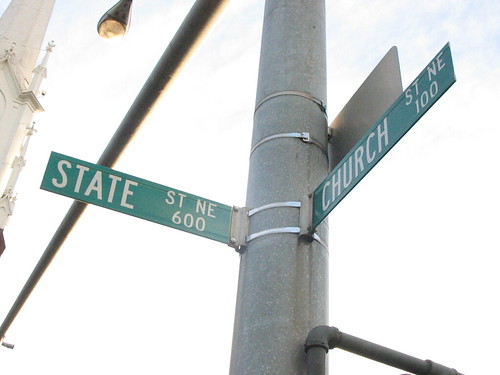This article originally appeared at PRDaily.
 There’s a common request I’ve been receiving, and it has me simultaneously annoyed, disappointed and scared for the future.
There’s a common request I’ve been receiving, and it has me simultaneously annoyed, disappointed and scared for the future.
The question comes (via email) in one of two forms:
- We’re interested in doing an editorial story on your client. For a small fee, we’ll be able to put together a feature story including an interview with your CEO.
- We’d love to develop an entire issue on your client including an interview with your CEO, several other members of the leadership team and a feature video that will run online. In exchange, all we ask is you provide us with a list of partners we can contact to see if they’re interested in purchasing advertising in the issue.
The initial request is usually followed up with something along the lines of “we do have a line between our editorial and advertising departments, but we also have to remember that we’re running a business too…”
Infuriatingly, these inquiries aren’t just coming from scam sites like The Leading Edge or Worldwide Business. I’ve been getting them from legit magazines, newspapers and websites, and even when I am working on something that’s purely editorial, it usually doesn’t take long for someone from the advertising side to reach out and ask if I’d be interested in purchasing an ad as well. I’ve even had publishers call me directly and tell me they keep editorial and advertising departments separate, but if I bought an ad, he’d “talk with the editor and make sure we got a story in there for you.” The worst scenario is when a reporter is interested in a story but is only willing to run it if you buy ad space, too.
Thanks to the popularity of native advertising and the shrinking of editorial departments, this pay-for-play approach is becoming more prevalent, and sadly, more accepted. There used to be a very clear separation of church and state, and now this line isn’t just blurred, it’s become almost non-existent.
For a PR guy like myself, this trend is disheartening for a number of reasons, not the least of which is it minimizes the work I do earning an authentic interest in my clients’ stories. No, the more concerning consequence of this mixing of church and state is the audience no longer knows the provenance of the content they’re consuming. Are those headphones really a best buy for Christmas, or did the publication include them because of that headphones ad that’s also in the issue? Is that thought leadership article really the work of a visionary, or is the author the CEO of a company that happened to do a media buy with that same publication?
In an era of “fake news,” Russian social media bots, and Bell Pottinger, this is a very dangerous development. What was once an outlier is now becoming more mainstream, and by fundamentally undermining the credibility of the media, this administration has created a self-fulfilling cycle of mistrust between the media and the public.
If the public no longer expects impartial reporting, then why should we even try? If the public is OK with pay-for-play content, then why wouldn’t we offer more of it?
The convergence of PR, marketing and advertising has only worsened the issue. While I may view these quid pro quo arrangements between advertising and editorial as abhorrent, many of my colleagues with marketing or advertising backgrounds celebrate it. Why wouldn’t they? They get the article, the editorial control, the timing and the impressions they want, all guaranteed for a dollar figure they can plan for versus paying someone like myself to try and earn that coverage with no guarantees. Add on surveys and studies that show the public doesn’t care if the content was paid or earned, and you’ve got an industry-wide ethical crisis on your hands.
What’s the solution? It’s going to take more than well-intentioned letters to the editor or codes of ethics to solve this problem. After all, the problem lies primarily with practitioners outside the confines of organizations like PRSA or CIPR. It’s marketers who view this as another extension of native advertising. It’s media buyers who think they’re doing PR people a favor by negotiating editorial as part of their ad buys. It’s CMOs who only look at the impact on their marketing campaign instead of the impact on their business.
Maybe Unilever’s threat will spur other brands to take a more active role in media ethics, but history tells me otherwise. As these walls between editorial and advertising tumble down, it’s become more and more difficult to spot pay-for-play content in the media, even for people in the industry like myself.
The answer must start and end with the general public. Call out lazy, biased reporting. Flag fake news as such. Check multiple sources. Report undisclosed sponsored content to the FTC. Pay for journalism so the media isn’t forced to rely on brand dollars to survive. A free and impartial press is integral to our democracy. Insist on it—for all our sakes.


Public Relations